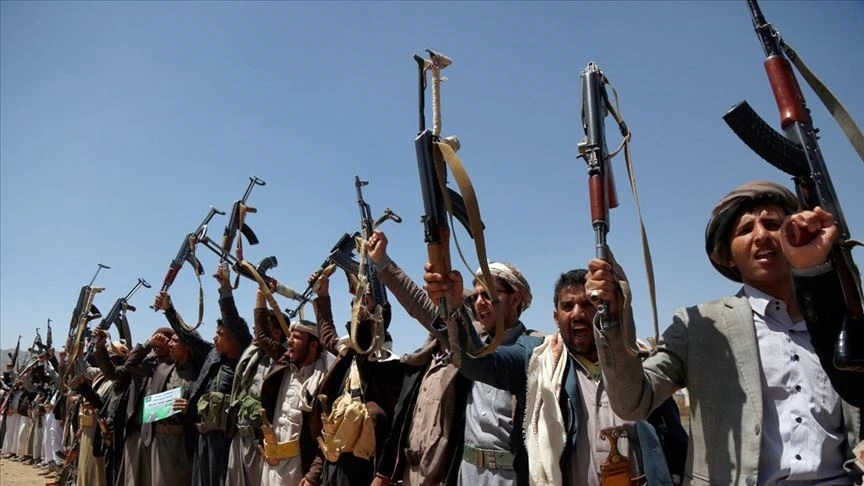Houthis capture 9 UN employees

At least nine Yemeni employees of United Nations agencies have been detained by Yemen’s Houthi rebels under unclear circumstances, according to authorities on Friday. The Houthis, who have been under increasing financial pressure and airstrikes from a U.S.-led coalition, are also likely to have detained others working for aid groups.
The Houthis, who seized Yemen’s capital nearly a decade ago and have been fighting a Saudi-led coalition, have been targeting shipping throughout the Red Sea corridor in response to the Israel-Hamas war in Gaza. Despite gaining more international attention, the Houthis have been cracking down on dissent at home, recently sentencing 44 people to death.
Regional officials, speaking anonymously, confirmed the U.N. detentions, which include staff from the U.N. human rights agency, its development program, the World Food Program, and one working for the office of its special envoy. The wife of one detainee is also being held.
The Mayyun Organization for Human Rights identified the detained U.N. staffers and named other aid groups whose employees were detained by the Houthis across four provinces they control: Amran, Hodeida, Saada, and Sanaa. The organization condemned the detentions as violations of the privileges and immunities granted to U.N. employees under international law.
Save the Children acknowledged the detention of one of its staff members and expressed concern for their safety, while other groups did not immediately respond. Activists, lawyers, and others have started an open online letter calling for the immediate release of those detained, warning that failure to do so would further isolate Yemen from the world.
The Houthis and their affiliated media did not immediately acknowledge the detentions. However, the Iranian-backed rebels planned for weekly mass demonstrations after Friday prayers, where Houthi officials typically speak about their actions.
The reasons behind the detentions are unclear, but they come as the Houthis face economic difficulties in their controlled areas, including the introduction of a new coin into the Yemeni currency. Yemen’s exiled government in Aden and other nations criticized the move as counterfeiting. Aden authorities have also demanded all banks move their headquarters there.
Yemeni journalist Mohammed Ali Thamer warned that internal tensions and conflicts could lead Yemen into complete economic collapse. The U.S. has planned to increase economic pressure on the Houthis by blocking their revenue sources, including a planned $1.5 billion Saudi payment to cover salaries for government employees in rebel-held territory.
The war in Yemen has resulted in over 150,000 deaths, including fighters and civilians, and created one of the world’s worst humanitarian disasters. The Houthis’ attacks on shipping have diverted attention from their domestic problems and the stalemated war, but they have faced increasing casualties and damage from U.S.-led airstrikes.
Thousands have been imprisoned by the Houthis during the war, with reports of detainees being tortured. The Houthis have also employed child soldiers and indiscriminately laid mines. Previously, the Houthis detained four other U.N. staffers, with two still being held. The U.N. human rights agency called these detentions a “profoundly alarming situation” revealing a disregard for the rule of law.
The Houthis belong to Islam’s minority Shiite Zaydi sect, which ruled Northern Yemen for 1,000 years until 1962.



